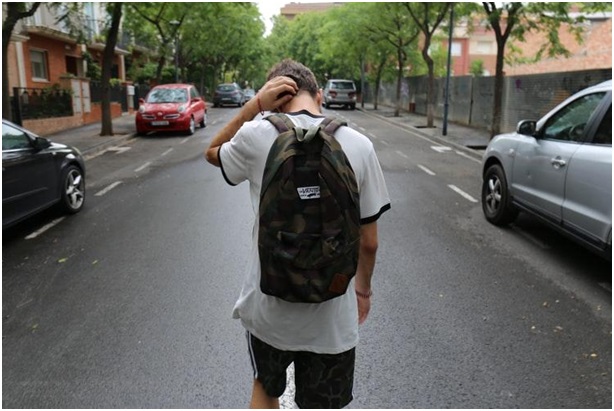Parenting
How to Protect Children’s Mental Health During a Divorce
by Beau Peters
There is a divorce in the U.S. every 13 seconds. That equates to over 2 million divorces each year. Many couples who get divorced have children to think about. You’ve probably heard the expression that you should “stay together for the kids,” but that isn’t always the best solution in an unhealthy marriage.
Going through a divorce can be emotionally taxing and stressful for anyone. Even if the separation is amicable, it’s still a process. When children are involved, it can create even more stress. Issues of custody and parenting time, child support, and several other factors come into play. If you can’t work those issues out, a court will end up doing it for you.
But for as taxing as a divorce can be on the couple involved, it can be even harder on the children.
A divorce is a loss, so it’s important to let your child grieve. Though you can do everything in your power to keep their world the same, the reality is that some things will end up changing, and they need to be able to work through that. Your own emotions can’t cloud the love and support you show your children.
Studies have shown that children with divorced parents are at a greater risk of mental health issues and behavioral struggles. So what can you do to protect your child’s mental health after a divorce?
Common Struggles at Different Ages
First, it’s important to understand that your child may react and struggle differently depending on their age. If your child is very young, for example, they may not be able to fully understand what’s going on. They also may worry that their parents may stop loving them since they stopped loving each other.
Using age-appropriate language and reassuring your small child that you will never stop loving them is often the best thing you can do for young children. As they grow, they may have more questions.
Unfortunately, those questions might stem from feelings of guilt. Children in grade-school often think they had a role to play in your separation. They might start to think it was their fault or that they should have done something differently.
If you get divorced when your children are teenagers, it’s not uncommon for them to get angry or frustrated. They might even try to make sense of it by placing blame on one parent (or both).
What Are the Signs to Look For?
Again, the signs of mental health struggles after a divorce can vary depending on your child’s age. Studies have shown that both depression and anxiety rates are higher in children of divorce. Furthermore, 60% of kids with depression in the U.S. aren’t getting the treatment they need. Many times, that’s because parents and caregivers don’t know the signs. The most common symptoms of depression in children include:
- Irritability
- Fatigue
- Feeling worthless
- Frequent sadness
- Changes in eating or sleeping habits
- Emotional exhaustion from stress that can lead to mood changes and difficulty concentrating
Children may have a hard time adjusting after a divorce, which can translate to mental health issues as well as behavioral issues. You might notice that your child starts to exhibit impulsive behaviors — some of which could be dangerous.
Some children of divorce also struggle in school or experience more conflict with their peers. They’re also more likely to take risks. When it comes to teens, that can lead to things like drug use, drinking, or even sexual activity.
Unfortunately, when these signs go unnoticed or kids don’t get the help they need, these problems can last well into adulthood.
How You Can Help With the Psychological Effects of Divorce
No parent wants to see their child struggling, especially because of something like a divorce. Recognizing some of the possible effects a divorce can have on your child is one of the best things you can do. The more you know about the possible impact, the more you’ll be able to support them and get them help, if needed.
If you’ve noticed some of these changes in your child and you’re worried they might be depressed, make space and time to talk to them. Spend quality time with them and encourage them to open up naturally. Listen openly and provide reassurance and clarity as much as possible.
In some cases, seeking out professional help is the best option. This can be especially true if you’re still struggling with the effects of the divorce, yourself. Therapists, doctors, and even nursing professionals can all help your children with the external and internal factors that can be brought on by a divorce. Some doctors may recommend additional therapy or support groups, while sometimes, medication like Trintellix may be prescribed to ease symptoms of depression or anxiety.
Divorce is hard on everyone, but your child doesn’t need to become another statistic and fall victim to the effects of depression. Pay attention to what they might be going through, establish a safe and nurturing environment, and you’ll both get through this together.
About the Author
Beau Peters is a creative professional with a lifetime of experience in service and care. As a manager, he’s learned a slew of tricks of the trade that he enjoys sharing with others who have the same passion and dedication that he brings to his work.





One thought on “How to Protect Children’s Mental Health During a Divorce”
Comments are closed.